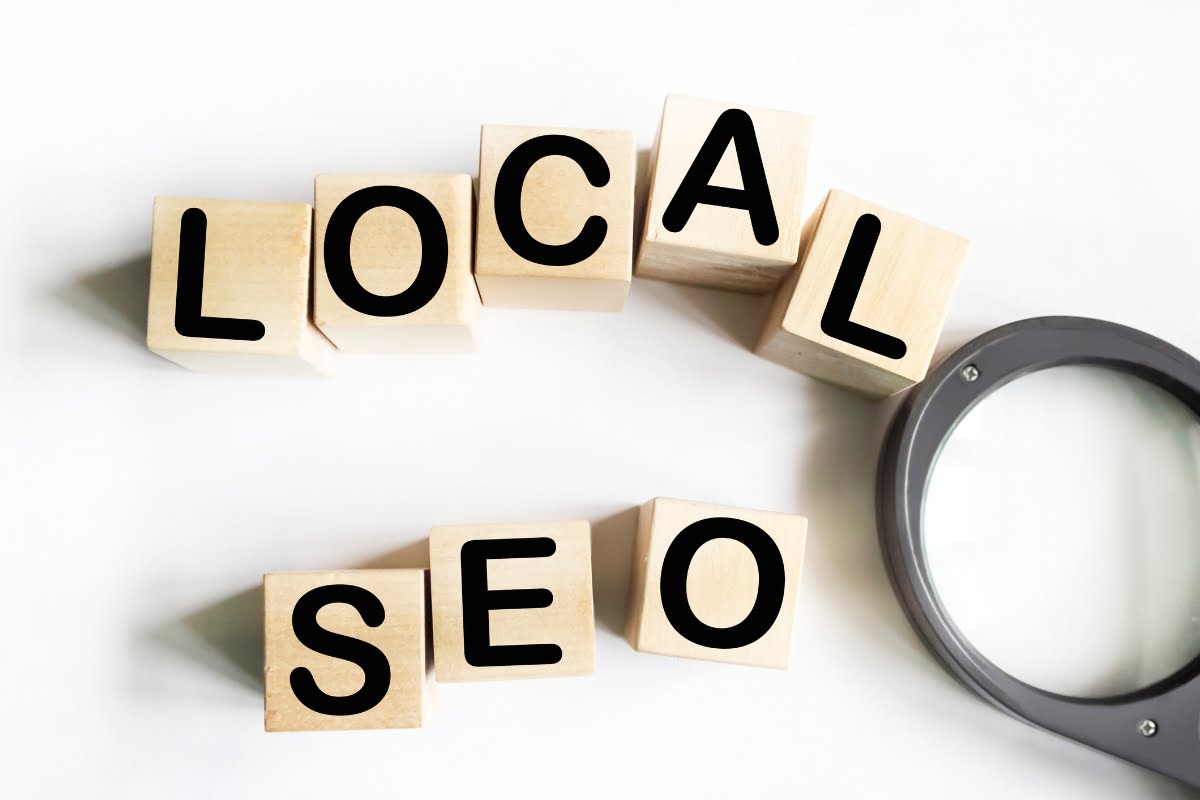In today’s digital landscape, where online visibility is paramount for businesses of all sizes, Search Engine Optimization (SEO) has become a buzzword among marketers and entrepreneurs alike. And it’s not without reason.
With the ever-increasing competition on the internet, having a solid SEO strategy is no longer optional — it’s essential for boosting your online presence and staying ahead in the game. But what exactly is SEO in digital marketing, and how can it help you skyrocket your business success?
In this comprehensive guide, we will delve into the world of SEO, unraveling its mysteries, and uncovering the proven strategies that can take your online presence to new heights.
Whether you’re a small business owner looking to establish your brand or a seasoned marketer aiming to edge out your competitors, this blog post will equip you with the knowledge and tools you need to optimize your website, climb the search engine rankings, and drive targeted organic traffic to your virtual doorstep.
So, let’s dive into the world of SEO and uncover the secrets that will help you navigate the digital landscape with confidence and finesse.
SEO in Digital Marketing: The Ultimate Guide to Online Success
Understanding the Role of SEO in Digital Marketing

Before we delve into the nitty-gritty of SEO strategies, it’s important to understand the role that SEO plays in digital marketing. In simple terms, SEO is the practice of optimizing your website and its content to improve its placement and online visibility on search engines.
When potential customers search for keywords in line with your business’s products and services, you want your website to appear at the top of the results, as this increases the likelihood of them clicking through to your site.
SEO involves a combination of on-page and off-page optimization techniques that help search engines understand what your website is about and determine its relevance to specific search queries. By implementing effective SEO strategies, you can attract targeted organic traffic to your site, increase brand visibility, and ultimately drive more conversions.
The Importance of SEO for Your Online Presence

In today’s digital age, having a strong online presence is crucial for businesses across all industries. Whether you’re a small local business or a global enterprise, having a well-optimized website can make all the difference in attracting customers and staying ahead of competitors.
Here are some key reasons why SEO is important for your online presence:
- Increased Visibility: With millions of websites competing for attention on search engines, it’s essential to optimize your site so that it stands out from the crowd. By appearing at the top of SERPs, you increase your chances of being seen by potential customers.
- Targeted Traffic: SEO helps you attract highly targeted traffic to your website. By optimizing your content for specific keywords related to your products or services, you can ensure that those who visit your site are genuinely interested in what you have to offer.
- Brand Authority: When your website consistently appears at the top of search results, it establishes your brand as an authority in your industry. This builds trust and credibility among potential customers, making them more likely to choose your products or services over those of your competitors.
- Cost-Effective Marketing: Compared to traditional advertising methods, SEO is a cost-effective marketing strategy. While it requires an investment of time and effort upfront, the long-term benefits far outweigh the initial costs.
On-Page SEO: Optimizing Your Website for Search Engines

Here are some of the key benefits of on-page SEO and provide you with proven strategies to optimize your website effectively.
- Title Tags and Meta Descriptions: One of the first things search engines look at when crawling your website is the title tags and meta descriptions. These elements provide a concise and accurate summary of what your webpage is about. Including your focus keyword in the title tag and meta description helps search engines understand the relevance of your content to a user’s search query. Make sure to keep your titles and descriptions compelling and within the recommended character limits.
- URL Structure: Optimizing your URL structure is another crucial aspect of on-page SEO. A clean and descriptive URL makes it easier for search engines and users to understand what your page is about. Including your focus keyword in the URL can further enhance its visibility and relevancy. For example, instead of using a generic URL like “www.example.com/page1,” it would be more beneficial to have a URL like “www.example.com/seo-in-digital-marketing.”
- Page Content: High-quality and relevant content is the backbone of any successful SEO strategy. Including your focus keyword naturally throughout your page content is essential. However, avoid keyword stuffing, as it can lead to penalties from search engines. Focus on creating engaging, informative, and valuable content that satisfies the user’s search intent. Use headings and subheadings to structure your content and make it easier for both search engines and users to navigate.
- Image Optimization: Images are not only visually appealing but can also contribute to your website’s SEO. When adding images to your website, ensure they are appropriately named using descriptive keywords. Compressing the image size without compromising quality helps improve page load speed, which is a crucial ranking factor. Also, don’t forget to include alt tags that accurately describe the image, as search engines cannot interpret images without text.
- Internal and External Linking: Linking is an integral part of on-page SEO. Internal linking helps search engines understand the structure and hierarchy of your website, making it easier for them to crawl and index your pages. It also helps users navigate through your website, increasing user engagement. Additionally, incorporating external links to authoritative and relevant sources can build trust and credibility with both users and search engines.
- Mobile-Friendliness: In today’s mobile-centric world, having a mobile-friendly website is no longer an option but a necessity. With the majority of internet users browsing on mobile devices, search engines prioritize mobile-friendly websites in their rankings. Ensure your website is responsive, loads quickly on mobile devices, and provides a seamless user experience across different screen sizes.
Off-Page SEO: Building Your Online Authority

Off-page SEO is a crucial aspect of digital marketing that can significantly impact your online presence and authority. While on-page SEO focuses on optimizing your website’s content and structure, off-page SEO revolves around building your online reputation and authority through external factors.
Building backlinks is a fundamental aspect of off-page SEO. Backlinks are links from other websites that direct users to your site. They serve as a vote of confidence for your content and website. The more high-quality backlinks you have, the more search engines perceive your site as trustworthy and authoritative. To build backlinks, you can engage in guest blogging, reach out to influencers or industry experts for collaborations, or participate in online communities and forums related to your niche.
Social media plays a significant role in off-page SEO as well. By establishing a strong social media presence, you can increase your online authority and reach a wider audience. Regularly sharing valuable content, engaging with your followers, and participating in relevant discussions can help you build brand awareness and credibility. Moreover, social media signals, such as likes, shares, and comments, can also contribute to your search engine rankings.
Online directories and business listings are another avenue to enhance your off-page SEO. Submitting your website to reputable directories and listing platforms can improve your online visibility and credibility. Make sure to provide accurate and consistent information across all listings, as this can positively impact your local search rankings.
Building relationships with influencers and industry leaders can give your off-page SEO efforts a significant boost. Collaborating with influencers to promote your content or product can expose you to their audience, increase brand awareness, and drive traffic to your website. Additionally, getting mentioned or cited by industry experts can provide valuable backlinks and further establish your online authority.
Online reputation management is an essential component of off-page SEO. Monitor and manage your online reviews and ratings online. Responding to reviews, both positive and negative, demonstrates your commitment to customer satisfaction and can enhance your reputation among potential customers and search engines.
Keyword Research: Unlocking the Power of Targeted Traffic

By conducting keyword research, you can discover the keywords that are most relevant to your business or industry. This allows you to optimize your website’s content, meta tags, and headings to align with these keywords. As a result, search engines will recognize the relevance of your website to specific search queries, and your website will appear higher in search engine rankings.
The power of targeted traffic lies in the fact that it brings visitors to your website who are actively looking for the products or services you offer. These visitors are more likely to convert into customers or take the desired action on your website, whether it’s making a purchase, filling out a form, or subscribing to your newsletter.
However, it’s important to note that not all keywords are created equal. Some keywords have high search volumes but are highly competitive, making it difficult to rank for them. On the other hand, long-tail keywords may have lower search volumes but can bring in highly targeted traffic with less competition.
By conducting thorough keyword research, you can identify the right balance between search volume and competition. This allows you to target keywords that have a good search volume while also being achievable to rank for. This strategic approach ensures that you’re attracting the right audience to your website, increasing the chances of conversions and overall success.
To conduct effective keyword research, you can use various tools and techniques. Keyword research tools like Google Keyword Planner, SEMrush, and Moz Keyword Explorer can provide valuable insights into keyword search volumes, competition, and related keywords. Additionally, analyzing your competitors’ keywords can provide inspiration and uncover untapped opportunities.
Content Optimization: Creating Valuable and Engaging Content

To optimize your content and make it valuable and engaging, it is important to understand the role of SEO in digital marketing. By implementing proven strategies, you can boost your online presence and attract more traffic to your website. Here are some key points to consider:
- Conduct thorough keyword research: Before creating any content, it’s essential to identify relevant keywords that your target audience is searching for. Use tools like Google Keyword Planner or SEMrush to find high-volume, low-competition keywords that align with your topic.
- Craft compelling headlines: Your blog post title and headings should be attention-grabbing and accurately represent the content. Incorporate your focus keyword, “SEO in digital marketing,” strategically to optimize for search engines while also appealing to readers.
- Write for your audience: While optimizing for search engines is important, don’t forget that your content should primarily cater to your target audience. Understand their pain points, interests, and needs, and create content that provides valuable solutions and insights.
- Structure your content: Break your content into short paragraphs and use subheadings to make it easier to read and digest. This helps with readability and also helps search engines identify the structure and relevance of your content.
- Incorporate multimedia elements: To make your content more engaging, consider using images, videos, infographics, or charts. Visual elements not only break up the text but also enhance the overall user experience.
- Optimize meta tags: Meta tags, including meta titles and meta descriptions, play a crucial role in SEO. Make sure to include your focus keyword and write compelling meta descriptions that entice users to click through to your content.
- Focus on quality and value: Instead of churning out mediocre content, strive for high-quality articles that offer unique insights, practical tips, or in-depth analysis. Valuable content not only attracts readers but also encourages them to share and link back to your website.
- Incorporate internal and external links: Linking to relevant internal pages within your website helps search engines understand the structure and hierarchy of your content. Additionally, strategically including external links to high-authority sources can boost your credibility and provide additional value to readers.
Remember, content optimization is an ongoing process. Continuously monitor your website’s analytics, track keyword rankings, and make necessary adjustments to ensure your content remains valuable, engaging, and optimized for search engines. By following these strategies, you can enhance your online presence and attract a larger audience to your website.
Technical SEO: Enhancing Website Performance and User Experience

Technical SEO plays a crucial role in enhancing website performance and user experience. When it comes to SEO in digital marketing, optimizing the technical aspects of a website can significantly impact its visibility and usability. By focusing on technical SEO, businesses can boost their online presence and effectively reach their target audience.
One of the key aspects of technical SEO is ensuring that search engines can easily crawl and index a website. This involves optimizing the website’s structure, URLs, and meta data. By organizing the website’s content in a logical manner and using descriptive URLs and meta tags, search engines can understand the website’s content better, resulting in improved visibility in SERPs.
Website speed is another crucial factor in technical SEO. A slow-loading website can lead to a high bounce rate as users tend to lose patience and move on to other websites. Optimizing website speed involves various techniques such as compressing images, reducing server response time, and minimizing CSS and JavaScript files. By implementing these strategies, websites can provide a seamless browsing experience to their users, ultimately improving user experience and engagement.
Mobile-friendliness is also a key consideration in technical SEO. Search engines prioritize mobile-friendly websites in their ranking algorithms. A responsive design ensures that the website adapts to different screen sizes, providing an optimal user experience across devices.
Mobile optimization also includes considerations such as touch-friendly elements, fast-loading pages, and easy navigation. By prioritizing mobile-friendliness, websites can cater to the growing number of mobile users and improve their search engine rankings.
In addition to these technical aspects, website security is becoming increasingly important in SEO. Websites that have implemented SSL certificates and HTTPS encryption are perceived as trustworthy by both users and search engines. By prioritizing website security, businesses can protect their users’ data and build trust, which can lead to higher search engine rankings and increased user engagement.
Local SEO: Reaching Customers in Your Area

Local SEO is a crucial aspect of digital marketing. It allows businesses to reach customers in their specific area and increase their online presence. By implementing proven strategies, businesses can effectively boost their visibility and attract local customers. In this blog post, we will explore the importance of local SEO and provide actionable tips to help businesses optimize their online presence in their target area.
One of the first steps in local SEO is to optimize your website for local searches. This involves incorporating relevant keywords that are specific to your area throughout your website’s content, meta tags, and headers. By doing so, search engines will be able to understand the geographical relevance of your website and display it to users seeking out specific products or services in your area.
In addition to keyword optimization, it is also essential to claim and optimize your online business listings. This includes registering your business on popular search engines and online directories such as Google My Business, Yelp, and Bing Places. By providing accurate and up-to-date information, such as your business address, phone number, and operating hours, you can ensure that potential customers can easily find and contact you.
Another effective local SEO strategy is to generate positive reviews from satisfied customers. Online reviews play a significant role in influencing buying decisions, and having a good reputation can greatly impact your local search rankings. Encourage happy customers to leave reviews on platforms like Google My Business or Yelp, and respond to any negative reviews in a professional and timely manner. This shows potential customers that you value their feedback and are committed to providing excellent service.
Furthermore, businesses can leverage the power of localized content to improve their local SEO efforts. Creating blog posts, articles, or videos that are specific to your area can help you establish yourself as a local authority. By addressing local topics, events, or concerns, you can attract a local audience and increase engagement on your website. This, in turn, can improve your search engine rankings and drive more organic traffic to your site.
Lastly, don’t forget about the importance of social media in local SEO. Establishing a strong presence on platforms like Facebook, Instagram, and Twitter can help you connect with your local audience and drive traffic to your website. Regularly posting engaging and relevant content, interacting with followers, and promoting local events or promotions can significantly impact your local SEO efforts.
Measuring SEO Success: Tracking and Analyzing Your Results

To measure the success of your SEO strategies and ensure that your digital marketing strategy is effective, it is crucial to track and analyze your results. By doing so, you can gain valuable insights into the performance of your SEO campaigns and make data-driven decisions to optimize your online presence.
One of the key metrics to monitor is your website’s organic search traffic. This metric shows you the number of visitors who find your website through search engine results. By tracking your organic search traffic over time, you can identify trends and patterns and determine the impact of your SEO efforts on attracting organic visitors.
Another important metric to measure is keyword rankings. By monitoring how your target keywords are performing in search engine results pages (SERPs), you can assess the effectiveness of your SEO strategy. Tracking your keyword rankings allows you to identify which keywords are driving the most traffic to your website and which ones may need optimization.
In addition to organic search traffic and keyword rankings, it is essential to analyze user engagement metrics such as bounce rate, time spent on the page, and conversion rates. These metrics provide insights into how users are interacting with your website and whether your SEO efforts are attracting the right audience. A high bounce rate or low time on page could indicate that your website content or user experience needs improvement.
Furthermore, tracking the number of backlinks to your website is crucial in measuring SEO success. Backlinks are an important ranking factor for search engines and can significantly impact your website’s visibility and authority. By analyzing the quality and quantity of backlinks, you can gauge the effectiveness of your link building efforts and identify opportunities for improvement.
To track and analyze these SEO metrics, you can utilize various tools such as Google Analytics, Moz, SEMrush, and Ahrefs. These tools provide valuable data and insights into your website’s performance, keyword rankings, user behavior, and backlink profile. Regularly reviewing and analyzing this data will help you understand what is working well and what areas of your SEO strategy need improvement.
Conclusion: Unleash the Power of SEO to Boost Your Online Presence
In conclusion, SEO plays a vital role in digital marketing by improving your website’s visibility, attracting targeted traffic, and boosting your online presence.
By implementing proven SEO strategies such as on-page optimization, off-page link building, keyword research, content optimization, technical SEO, and local SEO, you can climb the search engine rankings and drive more organic traffic to your website.
Remember to measure your SEO efforts regularly and make adjustments as needed to stay ahead in the ever-evolving digital landscape. So unleash the power of SEO today and watch your online presence soar!
Ready to optimize your website’s on-page elements for better visibility? Let Newman Web Solutions be your guiding force in harnessing the full potential of SEO techniques. We specialize in fine-tuning your website’s content, meta tags, and overall structure to ensure it stands out and ranks prominently in search engine results.
Embark on this optimization journey by scheduling a free 30-minute consultation through our website form. Enhance your website’s on-page elements with our expert SEO strategies.
Have questions about how our tailored SEO solutions can benefit your website? Contact us at (404) 301-9189. Together, let’s refine your website’s factors and elevate your brand’s visibility in the digital landscape!





